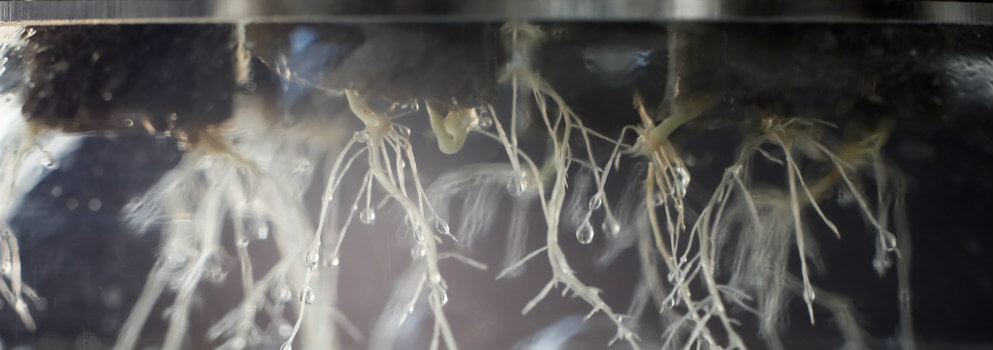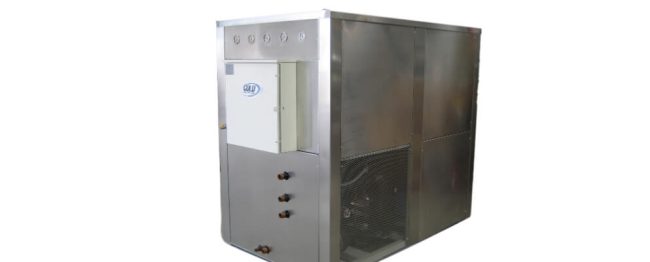
Does Hydroponic Water Temperature Affect Growth? – Ideal Nutrient Solution Temperature

The correct water temperature plays a crucial role in plant health. While all plants require an optimal temperature range for growth, the exact ideal temperature varies depending on the species.
For instance, warm-weather crops like cucumbers and onions thrive at higher temperatures, while leafy greens such as lettuce require cooler conditions. Maintaining the desired temperature range ensures plants can absorb nutrients effectively while also preventing issues like oxygen depletion or root stress.
Is There an Ideal Hydroponic Water Temperature?
The hydroponic water temperature affects multiple factors, including dissolved oxygen levels and plant metabolism. As water temperature rises, metabolic activity within plants accelerates, leading to increased nutrient uptake. However, higher temperatures also reduce oxygen solubility, which can lead to oxygen deficiencies that negatively impact root health.
To strike a balance between efficient nutrient absorption and oxygen availability, most hydroponic plants thrive in a temperature range of 59-86°F. However, the desired temperature for optimal growth depends on the plant variety and environmental conditions such as air temperature and humidity.
Maintaining the Proper Water Temperature in a Hydroponic System
To prevent rapid temperature fluctuations, growers must take steps to regulate water temperature within the desired temperature range. Some of the most effective methods include:
- Using a Water Chiller: A water chiller helps maintain a stable hydroponic water temperature, especially in warm climates where excessive heat can reduce oxygen levels.
- Adjusting Air Temperature: Controlling the air temperature around the hydroponic system can help stabilize water conditions and prevent overheating.
- Insulating Reservoirs: Proper insulation minimizes exposure to external temperature changes, keeping the nutrient-rich water solution at the ideal temperature for plant growth.
By carefully monitoring and regulating hydroponic water temperature, growers can ensure a healthy, thriving hydroponic system that supports robust plant growth and maximum yields.

How to Keep DWC Water Cool
Deepwater Culture (DWC) is a hydroponic method of cultivation where plant roots are suspended in an oxygenated, nutrient-rich solution. For planters to utilize this growth technique, maintaining an ideal hydroponic reservoir temperature is vital to achieving optimal results.
In the course of their operations, deep water culture systems tend to experience temperature increases which, if left unchecked, could adversely affect the health of the plants they supply. Outlined below are some of the best ways to cool a DWC system.
Invest in a Water Chiller
This is the single most effective way to handle undesirable spikes in temperature of DWC water. For growers who have multiple DWC systems to manage, acquiring a hydroponic water chiller is the smartest choice to make.
Once installed, a single chiller can handle a wide volume of water (with or without nutrients). The larger the volume, the larger the chiller capacity required. The temperature controls on the chiller will automatically detect and modify cooling temperature as necessary, creating an environment for hydroponically grown plants to thrive.
Wrap/Paint the Reservoir
Another way to achieve some level of DWC water temp control is to either paint the exposed surfaces of the reservoir white or wrap it in reflective material. This will deflect sunlight or artificial light, preventing it from striking the plant surfaces and generating heat.
Insulate the DWC System
Wrapping the reservoir in insulating material will help to keep out the heat and maintain a cool environment inside the deep water culture. Insulation jackets can be customized to serve this purpose.
Use Cooling Fans
Cooling fans can be used to directly cool heat emanating from a reservoir. Some available aquarium fans can be satisfactorily utilized with hydroponic reservoirs as well. The drawback to using fans for cooling is they can significantly increase the humidity of the system.
Situate Indoor Reservoirs Away from Heat Sources
The ideal location of an indoor hydroponic reservoir is as far away from sources of ambient heat (hot lights, heated equipment) as possible. Locating the reservoir in a cool place helps minimize the transfer of heat from these sources, keeping your hydroponic water temp at acceptable levels.
Use Immersion Coils with a Temperature Controller
A temperature controller can be used to set a specific temperature and monitor the actual temperature of the reservoir. A temperature sensing probe is in the reservoir, and an electric solenoid valve is installed at the entrance of the stainless steel immersion coil.
During chilling demand, the chilled fluid from the chiller will flow through the immersion coil. When the temperature set point is reached the valve will close preventing the chilled fluid from flowing through the coil. This is an efficient use of the chiller’s cooling capacity; only providing heat removal to the tanks that are calling for cooling.
Bury Outdoor Reservoir Units
For hydroponic gardens located outdoors, placing the reservoir system beneath the ground can be a good idea. This will not only shield the reservoir from the heating effect of direct sunlight but also provide it with the natural cooling effect of ground soil.
Handle Root Rot
A vital aspect of achieving ideal water temp for hydroponics is properly handling the issue of root rot. This condition if left unchecked can significantly contribute to warming up the nutrient water in a hydroponic system.
Root disease thrives in warm water, so the warmer it gets, the worse the rot. There are several measures which can be taken to address rot disease including:
- Identification and immediate removal of dead leaves and roots
- Using mineral-based nutrients to prevent root problems
- Application of enzymatic root area cleaners to minimize disease-causing sludge
Check Out Cold Shot’s Line of Hydroponic Chillers

Cold Shot Chillers manufactures some of the highest-grade hydroponic chillers suited for reliable cooling in your hydroponic gardens. Our agricultural chillers have capacities from 1.5 to 100 tons and are designed with the finest quality materials at our facility in Houston, Texas. We also provide a range of industrial water chillers for medical, metalwork, and brewery applications.
For consultations about your process cooling needs, please contact us online today or call us at 1-800-914-7370.
